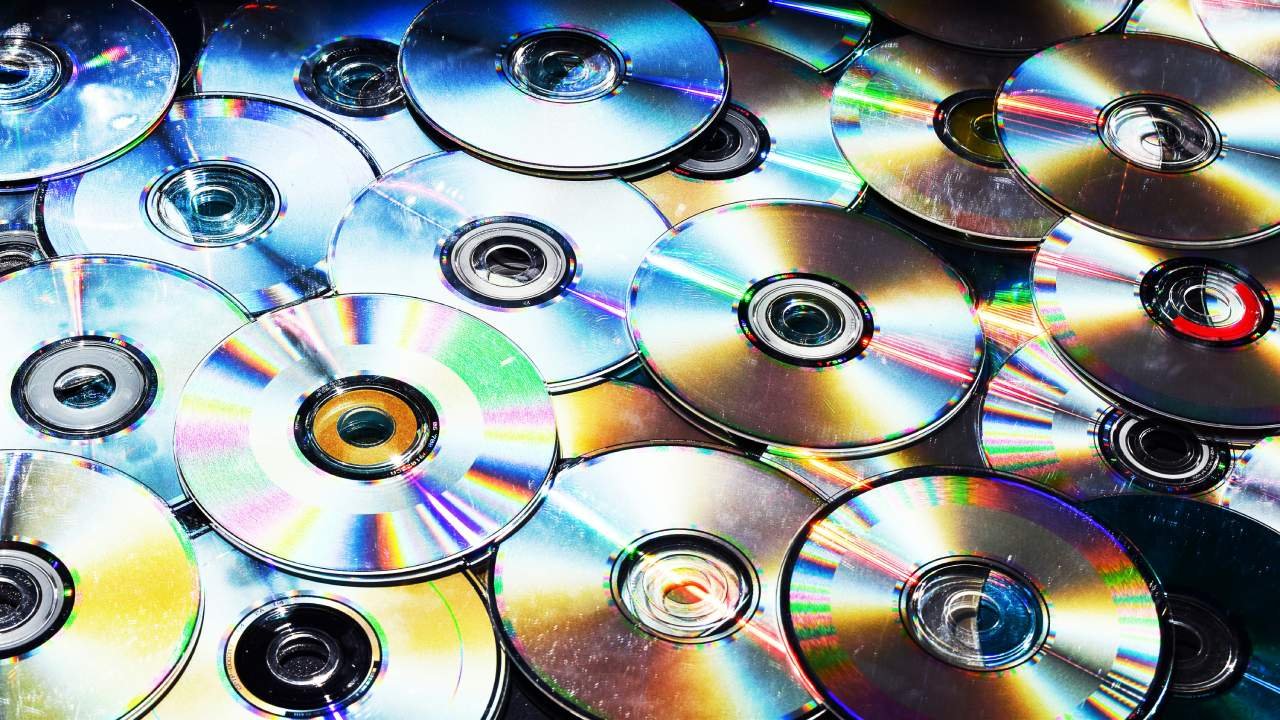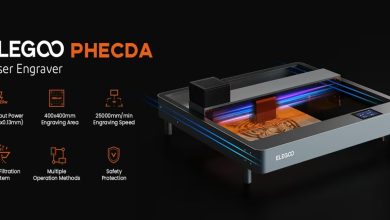How to Protect and Recover Data from Burned CDs

Whether you burned files to CD-Rs for archival purposes or used them to copy your friend’s music library and make mixes, I have bad news for you. The data on those old discs will eventually be gone. Burned CDs have a fairly short life span, but there are ways to potentially recover the data and protect it for future use.
What Happens to Burned CDs?
It’s important to note that the CD-R discs you burned are not the same as the music CDs you bought in a store. Commercially-pressed CDs (and Blu-rays and DVDs) are manufactured by physically imprinting the media onto the disc, similar to the way vinyl records are made. That physical stamp has a metallic coating. This helps to protect the media from the laser light that reads the data, as well as other pollutants.
The CDs/DVDs/Blu-rays that you burn at home lack this metallic coating. This leaves the chemical dye that stores the data vulnerable. Unfortunately, this dye is inherently unstable and begins to break down almost immediately.
How Long Do CDs Last?
Compact discs were never intended for longevity; they were meant for mass production. Simply put, CDs are cheaper and easier to produce than vinyl records and cassette tapes. Generally speaking, commercially-pressed CDs have a shelf life of about 100 years, provided there are no errors in the manufacturing process. On the other hand, CD-Rs are thought to last about five to 10 years, but there are always exceptions to the rule. The brand, how the discs are handled, the temperature they are stored at – all of these things can impact the lifespan of a CD-R.
Even commercially-pressed CDs are not immune to degrading. Obviously, mishandling your CDs can create scratches that render your disc unreadable. There are also many other factors that can compromise your CDs. Pollutants in the air, oxygen seeping in under that metallic layer, fluctuations in temperature and even the laser in your CD player can cause scorching that can cause irreparable damage to your compact discs.
How to Back Up Optical Discs
Great news! You’ve found a bunch of burned CDs, DVDs and Blu-rays. You’re ready to take a trip down memory lane with an old music mix, or find photos from that vacation to Bali, or maybe even the video of your cousin’s wedding. The bad news is that you don’t have anything to read them. Don’t worry too much, as you only need a couple of things, and it won’t cost you all that much.
The first things you need are a computer and an optical disc drive. Unfortunately, it’s increasingly rare to find a computer with a disc drive. Therefore, you’re going to need an external optical disc drive – either that, or rummage around in your closet for that old laptop you never threw away, and pray that you still have the charger for it.
Thankfully, external optical disc drives are readily available on Amazon. Just make sure that you grab an external disc drive that is compatible with the type of discs you have. Generally, CD/DVD optical disc drives are fairly cheap, whereas Blu-ray drives are a bit pricier. There are a ton of them available, so we recommend sticking to well-known brands. Or, consult our guide on the best external optical drives.
Tip: do you know you can open and close an optical drive without touching it?
How to Copy Data from a Disc
Provided your disc can still be read, you can recover the data on it. The process of copying data from an optical disc varies, depending on what kind of disc it is. Fortunately, all of the necessary software is available free of charge, and in some cases, is already installed on your computer.
Audio CDs
If it is an audio CD, then you can use software to rip the individual songs into digital music files. If you’re on a Mac, you can use iTunes. PC users can opt for Windows Media Player. You can even rip your music to a lossless format to ensure the best sound quality.
Movies
Movies can be ripped from discs in a similar manner to audio CDs, although you will need to download special software, like WinX DVD Ripper to do it. We should also mention that there are a ton of different parameters and settings to tinker with when ripping movies, so doing your research beforehand is crucial. Or, spend some time experimenting to see what gets the best results.
Data Discs
When you pop a data disc into your optical drive, it should appear on your computer as any other external storage device, like a USB flash drive. To copy data from the disc, highlight all of the files you want to keep and drag them over to your preferred destination. This could be your computer’s internal or external storage connected to your computer, like a hard drive. Alternatively, you can also make your own cheap NAS using a Raspberry Pi to serve the files over your local network.
Software
If you have an old software disc, there’s a good chance that your modern computer won’t be able to read it, but your OS should still see the disc as a storage medium with data on it. In this case, you’ll need to create a disc image. Doing so creates a digital copy of the entire disc, including all files and the file structure.
Unfortunately, Windows does not have a built-in tool to create disc images. However, there are several free programs that will get the job done, such as ImgBurn. If you’re on a Mac, you can use the built-in Disk Utility tool to create a disc image.
Tip: learn how to play Blu-Ray discs on macOS.
What If My Disc Cannot Be Read?
If you pop in a disc, and nothing happens, don’t freak out – at least not yet. There is some troubleshooting you can do before throwing the disc in the trash.
Clean Your Disc
Fingerprints, scratches, dirt and grime on the surface of a CD can all impact its readability. To clean a disc, you need a dry microfiber cloth. We don’t recommend using any solvents or sprays. With the microfiber cloth, wipe the disc from the center to the edge while applying moderate pressure. Repeat this until you have removed all smudges and marks on the disc.
Software Recovery

There are various programs that claim they can recover data from damaged or unreadable discs. Isobuster and Recovery Toolbox are some of the most popular options, but there are many others. Obviously, tapering expectations is a must, as your mileage will vary. After all, there is no guarantee that the software will work.
Data Recovery Specialists
There are numerous businesses that specialize in data recovery, including data stored on optical discs, but they can be fairly expensive. Additionally, as with recovery software, there is no guarantee that they will be able to recover data on damaged discs. But if you’ve tried everything, and nothing seems to be working, you may want to Google data recovery specialists in your area.
Can I Safely Store Data on Optical Discs?
Unfortunately, standard CDs, DVDs and Blu-rays are not suitable for archival storage. There are simply too many ways for the disc to become corrupted, to be trusted with long-term data storage. However, there are archival quality optical discs on the market. M-Discs (Millennial Discs) are available as DVDs and Blu-rays, and they claim to have shelf lives of 1000 years.
As mentioned earlier, standard optical discs store data on an organic dye. Unfortunately, that dye starts to degrade almost immediately, leading to data rot. M-Discs, on the other hand, have a rock-like data layer. Since data is literally etched into this layer, they are immune to data rot, making them suitable for long-term storage. To protect the data on your CDs, you will pay a premium price for M-Discs, and you need to ensure that your optical disc drive is compatible. But can you really put a price on piece of mind?
Compact discs may be going the way of the dodo, but there’s a good chance that you have valuable data stashed on them. Whether the CDs hold photos, music, movies or other data, you want to make sure that you protect and/or retrieve it before it’s potentially lost forever. If you are streaming your entertainment and no longer using your CDs and DVDs, learn how to do it securely with Surfshark VPN.
Image credit: Unsplash
Subscribe to our newsletter!
Our latest tutorials delivered straight to your inbox




